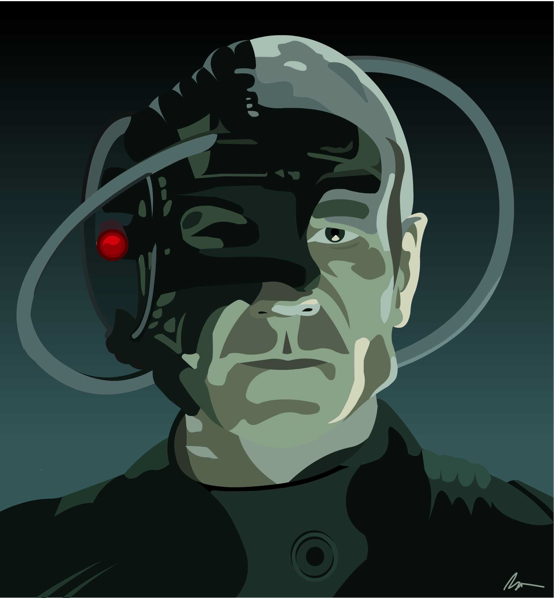
Foreword 2011: On Robert Sardello and Rudolf Steiner
In the previous material (from 2005) on the New Age starting here, we have been contrasting William Bloom’s upbeat New Age approach with a very different approach – one where instead of New Age denial, Robert Sardello encourages us to feel – feel the pain of the world.
Between William Bloom’s call for a supposedly all-embracing universal “holistic” spirituality and Sardello’s call to feel – acutely – world pain, there lies an abyss.
For even though the “holism” espoused by people like Bloom claims to be inclusive – offering a supposedly global spirituality – I argue here that this so-called holistic approach actually excludes Christianity – subtly and not so subtly.
However I am arguing this in a very non-traditional way. As explained before, this material was written mainly for people – old friends of mine – who had been involved in the New Age movement, as I myself had been involved, for some twenty years before my conversion to Catholicism.
It seems impossible to speak to New Agers with Catholic dogma. Nor could one speak – for example – about making reparation for outrages committed to the Immaculate Heart of Our Lady.
However much wisdom may be found, say, in the Catholic tradition of Reparation for the sin of the world, one only invites blank incomprehension by raising it in New Age circles!
Thus back in 2005, I invoked a thinker I thought might be understood: Robert Sardello – indebted to Jung and Steiner – in order to suggest not only what is excluded in so-called “inclusive spirituality”, but that what is excluded is often Christianity itself.
This idea is at the heart of the admittedly unconventional approach, which I take in this material from 2005.
Are there other ideas here? Yes, there are. For although I reject Rudolf Steiner‘s anti-ecclesiastical Anthroposophy, it would be wrong to deny that there are ways his thinking does seem incisive to me – ways which are hardly incompatible with the Church.
For example, Steiner warned in a very lucid fashion as to the dangers of modern philosophical materialism leading to obscene commercial materialism. All this would lead to cultural decay and heartlessness, Steiner suggested in cogent terms. Such ideas are hardly contrary to Catholic thought and faith.
Such is also the case with the notion (present in Steiner) that the Judaeo-Christian tradition is marked by qualities of intense feeling – which stands in contrast with the less feeling stoic philosophies of the pre-Christian world.
One may look at the ideal of detachment in Platonic or Eastern philosophy and see that here is something very different from Christ visibly and nakedly suffering on the Cross.
Our Lord was not a transcendent, detached, remote Eastern master – but infinitely human. However regrettable Anthroposophy may be, Steiner’s sharp contrast of Christianity with the East could well be helpful to New Agers who believe in a “single global universal spirituality”.
And all this was in my mind – and heart – as I tried “Talking to the New Age” back in 2005. Hopefully, this material might be of some use in that dialogue. For convenience, we will alsp list and link the six parts of this series:
- Talking to New Agers —Part 1: A Still-Hesitant Apologetics
- Talking to New Agers —Part 2: On Holistic Spirituality
- Talking to New Agers—Part 3: On Amputating Christianity
- Talking to New Agers—Part 4: A Catholic Convert from the New Age
- Talking to New Agers—Part 5: The Catholic Sacraments
- Talking to New Agers —Part 6: The Holistic Bubble
And now back to 2005, at least after the following short video from myself—Roger Buck
From 2005: Amputating Christianity
It is important to note that Sardello’s encouragement of grief and anger has a direct connexion to Steiner’s view of the Christ event, in which human nature was so changed that the stoic detachment of the Greeks and other pre-Christian spiritualities was superseded.
Before Christ, stoic detachment had a certain validity, according to Steiner’s thinking.
After Christ, everything changed. The way since Christ had become blazingly personal. And it became ‘blessed to grieve’ (cf. Matthew v 4) and even to take up a whip against the money-lenders, in the temple of God …
In connexion with the blazing personal quality of Steiner’s understanding of the Christ event, Steiner enjoined his followers to feel. Feel not only the joy of creation, but also the horror of counter-creation. His message then, has a far less detached, upbeat quality, than much of the New Age milieu.
Steiner warned about the danger of our society becoming ever less feeling. He linked this to an evil he called ‘Ahriman’.
Connected to this, is Steiner’s consideration that human health requires developing a threefoldness of intensified thinking, willing and feeling. ‘Ahriman’ however, seeks only twofoldness – intensifying (a degraded) thinking and willing, at the cost of feeling.
Some of you will know the Borg from Star Trek. (For those who don’t, the Borg are a chilling race of robot-icised humans, intent on reducing the cosmos to a monoform, technological culture).
The Borg represent the best popular illustration I know of Steiner’s ‘Ahriman’: they possess tremendously intensified will; tremendously intensified thinking of a technological kind – and no Heart.
Essentially, Steiner saw the danger of our society becoming Borg-ified.
Yes, unlike the current fashion in secularism and the New Age, Steiner spoke of evil: forces in the spiritual world absolutely determined to bring human development to a halt. It is not simply in the physical world that Hitler, Stalin, Mao et al, express evil.
This evil comes from beyond. And ‘Ahriman’ works out in countless subtler ways, including in our own time, I have no doubt, within the administration of George W Bush, the editors at The Economist, and all who sacrifice feeling to the ‘bottom line’.
Steiner predicted the continued working-out of this evil, particularly with the rise of a brutal, soulless capitalism, intent on technology and materialism. Astonishingly – at least to me – in 1910 he even dated his prediction: The 1980’s would be a time where ‘Ahriman’ would receive heightened power. …
Now, this trajectory toward Borg-ification is also what Allan Bloom paints in his bleak picture of constricting horizons and brutalised delicacy.
All of which is not unconnected to a decrease in compassion and sensitivity in our political options. To the fact that, for example, in Britain there has been an uninterrupted 26 years of conservative government – even if one of the conservative parties happens to be called ‘Labour’. And from the 1980’s onward, we see the same pattern everywhere …
It is with this trajectory firmly in mind (or rather, heart) that I believe Robert Sardello has stressed the importance of grief and anger. Grief and anger at what we see in the world. Once we face realistically the tragedy of the world, Sardello also advocates other things.
Essentially he is saying that for a very long time, human consciousness was ‘carried’ by its traditions – in the West by its Christian traditions – but that we can no longer expect to be unconsciously ‘carried’ by traditions.
We must compensate, by bringing as much consciousness as we can, not only carefully feeling, but carefully thinking. I believe this includes thinking intensively about such issues as epistemology, as I am trying to do here. We must add such consciousness to all we do. This is at the heart of his book, Love and the Soul.
But as much as I recommend Sardello’s work, I do not want you to think that I am simply an uncritical follower of his. I also do not want you to think that I am advocating Steiner’s Anthroposophy. No, I am Catholic, and there is a great deal to lament in Anthroposophy.
Sardello, to my mind, may be too cut off from the possibility of the continued value of the Church and tradition – infused with as much consciousness as we are capable of. The answer is not to despair of tradition, but to take up the tradition and add to it – with intensive consciousness of the very qualities that Sardello recommends.
Thus, what I advocate includes profound respect to traditional Christianity. By which I mainly mean Catholic and Eastern Orthodox.
And in this letter I will mainly speak of Catholicism. For although Orthodoxy beautifully preserved Christian Mystery in the East, I am a man of the West addressing Western friends, and in the West, it is Catholicism to which we mainly look to the preservation of the entire Christian tradition.
A note on Protestantism is needed here. Though Protestantism has its greatness, it nonetheless was founded on a massive amputation of much of the preceding 15 centuries of Christian tradition. Luther, Calvin and the Reformers that followed, called into question everything but the scriptures (Sola Scriptura – the Bible alone) – and often only a very literal interpretation of the scriptures, at that.
From the Catholic perspective, then, the Seven Sacraments, with their ‘source and summit’ in the transubstantiation of bread and wine into the Body and Blood of Christ; the intercession of Mary and the Communion of Saints, and countless other aspects of the Mystery were called into question and amputated to one degree or another in the Reformed Churches.
In the West then, I say, we are mainly indebted to Catholicism for preserving the Mystery. Though credit must be given where credit is due. To take a single example, high Anglicanism deserves credit. It should also be acknowledged that the Protestant Reformers had noble intentions. What they wanted to amputate were the horrendous abuses of the Renaissance Papacy.
Before going further, let me draw closer attention to this term: amputation.
For my concern for the dangers of surgical amputation is key to much that follows. Now, as all of us know, there are different ways to heal. In extreme cases, surgery can be necessary. It may be necessary to amputate a leg. The patient will be crippled for life, but will yet live …
My concern with Protestantism is that an unnecessary amputation was made. …
This is also my concern with the New Age, which is a lot like extreme Protestantism. Extreme, inasmuch as the individual approach, apart from the collective wisdom, becomes even further emphasised – while tradition is destroyed, because the tradition is seen as infected.
But perhaps we need the tradition in order to walk, rather than limp, or even crawl …
And this is what I feel in William’s articulation of the “holistic” culture.
The message seems to be: “Amputate – Prune it back. Prune it all back to the core skills – so-called.”
But what if in this pruning back, vital new shoots are amputated – such as the way of grief and anger, born in Palestine? And it is with sadness in my heart, that I report that this is what I feel in Soulution.
So many factors of religion are repeatedly mowed down under the aspiration, yes the wholly genuine aspiration, to a “holistic inclusiveness”.
Words such as “theology” and “tradition” in William’s book are used in a consistently pejorative sense, for example. And it is my long experience of the New Age culture over two decades that religious endeavour beyond a certain “core” is dismissed, mocked, amputated … in a fashion that is not actually so “holistic” at all.
And in a way that like secularism, leads us back to the lowest common denominator.
Personally, I cannot help thinking of William’s “core skills” as lowest common denominator skills – again, as beautiful as they undoubtedly are. And if Allan Bloom is right that tradition has much to offer in keeping us delicate and open, I fear the consequence of William’s surgery and rebuke.
In William’s book, the word “traditionalist” is used interchangeably with “fundamentalist”, and then “fundamentalist” is associated with terms like “Nazi”.
I don’t believe William consciously intends to smear. I think him guilty of nothing more than (a well-intentioned) sloppiness, but the cumulative result amounts to a tainting – however unintentional – of anything outside the core of his “holism”.
Dear friends, it hurts me to say such things to many of you. It hurt me to write them to William, as I recently did.
But I think it needs to be said: Despite our noble intentions to be holistic, are we really holistic, if we end up writing-off everything that does not jibe with one’s own pruned-back list …?
Are we really in our deepest wisdom, promoting only skills that can be commonly agreed upon?
Is it not possible that this pruning back colludes with materialistic secularism in these ways, and actually empowers it? Along with a ‘hundredth monkey’ optimism, where all we have to do is achieve a critical mass of ‘love’, and millennia of world evil will be miraculously overcome?
Such thoughts may be shocking to those of you who knew me in my New Age past. Before I continue to unpack my perhaps unsettling conclusions, particularly regarding Catholicism, you may appreciate a more personal approach. A little bit of autobiography about how I travelled from Findhorn in Scotland to the Vatican in Rome, is perhaps then in order.
To Navigate Through This Series
- Talking to New Agers —Part 1: A Still-Hesitant Apologetics
- Talking to New Agers —Part 2: On Holistic Spirituality
- Talking to New Agers—Part 3: On Amputating Christianity
- Talking to New Agers—Part 4: A Catholic Convert from the New Age
- Talking to New Agers—Part 5: The Catholic Sacraments
- Talking to New Agers —Part 6: The Holistic Bubble
Foreword for Monarchy by Roger Buck
Buying Books at Amazon Through These Links Gives Us a Commission. This Supports Our Apostolate. Thank You if You Can Help Us Like This!

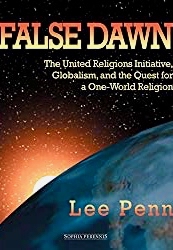


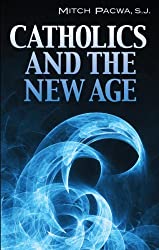
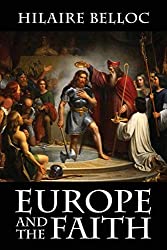
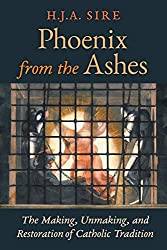
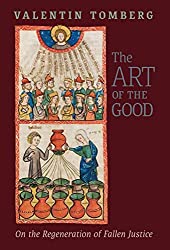



Comments
comments are currently closed
One response to “Talking to New Agers—Pt. 3: On Amputating Christianity”
[…] new age – Google Blog Search « Oct.28.2011 ”The Final Mayan-DNA-Spiritual-Awakening Begins” 11:11 Have you […]